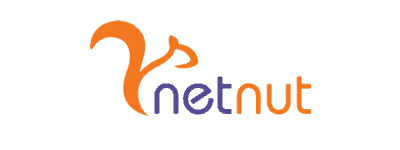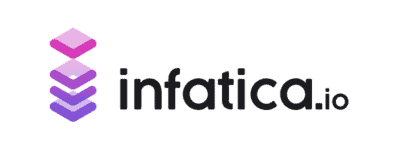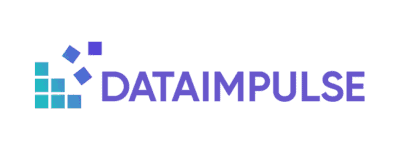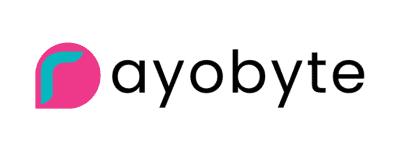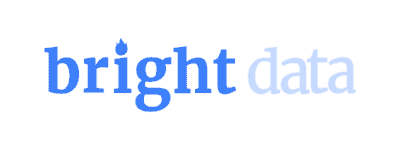The Best Proxy Server Providers of 2026
The proxy server market has grown significantly, moving beyond shady practices like black hat SEO to support diverse needs. Individuals use proxies to access geo-restricted content, enhance privacy, and bypass website blocks, while businesses leverage them for web scraping, data aggregation, and market research.
With so many providers out there, choosing a trustworthy service is challenging. Misleading claims often hide unethical practices or exaggerated IP pool sizes. Instead of sifting through countless reviews, we used our expertise to test leading proxy providers and their offerings. Here’s what we discovered.

The Best Proxy Server Providers of 2026:

1. Decodo (ex Smartproxy) – best bang for your buck.

2. Oxylabs – best proxies for enterprise.

3. SOAX – advanced features and platorm-based pricing.

4. Webshare – affordable & highly customizable plans.
Strong options we haven’t tested recently

5. Bright Data – best platform for proxies.
How We Selected the Best Proxy Servers
When selecting the best proxy servers, we relied on our technical expertise and experience, as no universal standards exist for testing proxies. We developed a comprehensive approach based on two pillars: a performance test and a manual analysis.
The performance test evaluates critical factors like the size and quality of the proxy pool and its, its infrastructure performance, and success rate with real targets. Meanwhile, the manual analysis explores the provider’s features, price, and user experience. We compiled all of the data in our annual Proxy Market Research.
Why You Shouldn’t Use Free Proxy Servers
We won’t be looking at the best free proxy servers. Why? Let’s face it: free proxy servers are terrible for anything beyond the most basic tasks. Are you interested in hiding your IP address and browsing the web anonymously? Don’t use a free proxy server that can track your every move. Unprotected web proxy servers can steal your data or inject ads into the websites you visit. Beyond that, they’ll be slow and often already blocked or abused.
None of the proxy providers in our list are free. Heck, some of the best anonymous proxy services aren’t even cheap! That’s because good service costs money, and we’re looking at the best the proxy server market has to offer.
The Best Proxy Server Providers of 2026
1. Decodo (ex Smartproxy)
Best bang for your buck.

Mobile proxies
10M IPs

ISP proxies
Not specified

Datacenter proxies
100K IPs

Residential proxies
115M IPs
- Locations: global (residential, mobile); ~12 countries (ISP); ~15 countries (datacenter)
- Support: award-winning 24/7 support via chat or email
- Extras: API, browser extension, anti-detect browser, extensive documentation
- Free trial: 3-day trial, 14-day refund
- Pricing starts from:
– Residential: $3.5 for 1 GB.
– Datacenter: $3.5 for 100 IPs ($0.035/IP) or $30 for 50 GB ($0.6/GB)
– ISP: $5.64 for 10 IPs ($0.56/IP) or $6.5 for 1 GB
– Mobile: $4 for 1 GB
Decodo is a smart pick regardless of which proxy type you’re after. Let’s take a closer look at what this provider brings to the table.
To start, its proxies come from large, globally distributed pools covering a wide range of countries. Every plan grants access to the full pool, though you can also opt for a fixed number of IPs if you prefer.
We were impressed by Decodo’s consistently high connection success rate and quick response times across most proxy types. For instance, its residential proxies connected successfully 99.95% of the time after hundreds of thousands of requests – outperforming even some of the industry’s long-standing leaders like Bright Data.
Beyond technical performance, Decodo shines in user experience. It offers thorough documentation, intuitive proxy management tools such as a browser extension, and award-winning 24/7 customer support. You also get access to handy extras, including a free antidetect browser.
Pricing-wise, Decodo positions itself comfortably between budget and premium providers. Some of its offerings, like shared datacenter proxies, are super affordable – starting at just $0.035 per IP.
As for drawbacks, the main ones are limited location coverage for datacenter & ISP proxies, as well as somewhat less flexible plans compared to competitors that provide non-expiring traffic.
Read the Decodo review for more information and performance tests.
2. Oxylabs
Best proxies for enterprise.

Mobile proxies
20M IPs

ISP proxies
Not specified

Datacenter proxies
2M IPs

Residential proxies
175M IPs
- Locations: global (residential, mobile); ~20 countries (ISP), up to 188 countries (datacenter)
- Support: 24/7 via live chat, dedicated account manager
- Extras: API, browser extension, extensive documentation
- Free trial: 7-day trial for businesses, 3-day refund for individuals
- Pricing starts from:
– Residential: $4 for 1 GB
– Datacenter: $50 for 77 GB ($0.65/GB)
– ISP: $16 for 10 IPs ($1.6/IP)
– Mobile: $5.4 for 1 GB
Oxylabs is a premium provider focusing on medium-sized to enterprise clients. It sells all types of proxy servers. The company’s proxy networks are some of the largest in the world and cover most locations.
But Oxylabs doesn’t only focus on quantity; performance is its most prominent feature. To illustrate this, most of the provider’s proxy types ended in the top three positions on our lists. Its residential proxies succeeded up to 99.95% of the time, had impressive stability and speed.
And let’s not forget the benefits of having a dedicated account manager to help you with whatever query you have, flexible proxy management tools, and quality documentation. It only shows how the company values its customers.
However, you’ll need a larger budget to reap most of Oxylabs’ benefits. So, if you’re a proxy newbie or looking to use proxies for personal purposes, the provider’s pricing may not be ideal.
Read the Oxylabs review for more information and performance tests.
3. SOAX
Advanced features and platform-based pricing.

Mobile proxies
30M IPs

Datacenter proxies
Not specified

Residential proxies
155M IPs
- Locations: global (residential, mobile); 6 countries (datacenter)
- Support: 24/7 via live chat and tickets
- Extras: limited API, proxy checker, customer success manager
- Free trial: 3-day trial for $1.99 available
- Pricing starts from:
– Residential: $4 for 1 GB
– Datacenter: $0.80 for 1 GB (minimum 5 GB)
– Mobile: $4 for 1 GB
SOAX also offers a full range of proxy networks, all of them packaged as rotating pools. They’re in the middle of the pack by size and offer competitive performance.
The most distinguishing thing about SOAX is how flexible the provider is. City and ASN filtering come in the box, you get SOCKS5 with UDP and QUIC support, flexible rotation options, and several IP optimization filters.
In addition, subscribing to any plan unlocks all products, letting you freely switch between them. SOAX offers quite affordable rates – their price per GB is lower than the market average.
SOAX may not be a great choice if you’re looking for dedicated proxies. In addition, the provider is transitioning to a new dashboard, so it may take some time until it reimplements all the features.
4. Webshare
Affordable and highly customizable plans.

ISP proxies
100K IPs

Datacenter proxies
Not specified

Residential proxies
30M IPs
- Locations: global (residential); ~10 (ISP); 40+ countries (datacenter)
- Support: via email and chat (6AM-6PM PST)
- Extras: API, basic documentation
- Free trial: free plan with 10 shared datacenter IPs
- Pricing starts from:
– Residential: $3.50 for 1 GB
– Datacenter: $2.99 for 100 IPs ($0.03/IP)
– ISP: $6 for 20 proxies ($0.3/IP)
Webshare offers datacenter and ISP proxies in various formats, as well as residential proxies. The provider stands out due to its flexibility – very few providers can be customized to such an extent.
You’re free to choose how many IPs you’d like to get and where. You can then adjust the traffic, threads, and network priority. Webshare’s options for IP replacement are also extremely flexible: they range from individual refreshes to a full change up to every five minutes.
The service is easy to use for beginners and surprisingly developer friendly: there are detailed usage stats, and you can replicate most of the dashboard’s functionality via the provided API.
Webshare can be considered an affordable provider. Its basic configurations cost well below the market average, and each new user gets 10 free datacenter proxies to try out for free.
Webshare’s drawbacks include limited targeting options (for example, you can’t choose cities) and a relatively lackluster residential proxy service.
Read the Webshare review for more information and performance tests.
5. NetNut
Rotating proxies for large-scale use.

Mobile proxies
1M IPs

ISP proxies
1M IPs

Datacenter proxies
150K IPs

Residential proxies
85M IPs
- Locations: 200+ countries (residential); 100+ countries (mobile); 30+ (ISP); US (rotating datacenter)
- Support: Via email, live chat, phone, Skype (larger plans)
- Extras: API (for resellers), extensive documentation
- Free trial: 7 days for businesses.
- Pricing starts from:
– Residential: $99 for 28 GB ($3.45/GB)
– Datacenter: $100 for 100 GB ($1/GB)
– ISP: $99 for 7 GB ($14.40/GB)
– Mobile: $99 for 13 GB ($7.60/GB)
NetNut has an eye for businesses with big needs. It offers datacenter, residential, ISP, and mobile proxies in the rotating pool format. Aside from the datacenter product, the proxy networks have broad location coverage and can be filtered up to a city or ASN.
In recent years, NetNut has invested a lot into IP sourcing. As a result, it now owns one of the largest pools in the US and UK, rivalled only by Oxylabs, Decodo, and maybe Bright Data. NetNut still experiences more connection errors than the best, but its performance is otherwise solid.
The provider’s plans start from $100 and offer no paying as you go, so they require quite an investment. However, the rates scale pretty well for bulk purchases.
The two areas where NetNut could improve are dedicated proxies (you won’t find any, at least publicly) and user experience. Despite providing very detailed usage statistics, NetNut’s dashboard disappoints.
6. Infatica
Solid choice for all proxy types.

Mobile proxies
5M IPs

ISP proxies
150K IPs

Datacenter proxies
500K IPs

Residential proxies
15M IPs
- Locations: global (residential); 100+ (mobile); 16 (ISP); 40 (datacenter)
- Support: 24/7 support via tickets, chat or email
- Extras: extensive documentation
- Free trial: 3-day trial for $1.99 available
- Pricing starts from:
– Residential: $4 for 1 GB
– ISP: $3 for 1 IP
– Datacenter: $0.6 for 1 GB
– Mobile: $8 for 1 GB
Infatica sells four types of proxy servers. Three of them come in pools and rotate, and you can get its datacenter or ISP proxies in dedicated lists.
The provider’s residential and mobile proxy networks include versatile location targeting options, including city and ASN. You can create lists of up to 1,000 proxies at once.
In our benchmarks, Infatica’s residential and mobile proxies were above average in size and fast, especially in Europe. They did experience more connection errors than other providers, though.
Infatica’s rates are comparable to mid-market alternatives like Decodo or SOAX. They provide an option to pay as you go for those with small needs. All in all, there’s nothing particularly remarkable about this provider, just a solid service.
7. DataImpulse
Affordable rotating pools with non-expiring traffic.

Mobile proxies
Not specified

Datacenter proxies
Not specified

Residential proxies
90M IPs
- Pool size: 150+ countries (residential, mobile, datacenter)
- Support: live chat, 24/7 via email
- Extras: API for resellers
- Free trial: none
- Pricing starts from:
– Datacenter: $50 for 100 GB ($0.5/GB)
– Residential: $50 for 50 GB ($1/GB)
– Mobile: $50 for 25 GB ($2/GB)
DataImpulse offers cheap residential, datacenter, and mobile proxies. While their main selling point is affordability, the provider manages to provide a decent service.
For the price, DataImpulse’s proxy pools are actually relatively large – for example, the residential network returned significantly more unique IPs than IPRoyal. In addition, we found over 50,000 datacenter IPs in the US, which is impressive. All in all, over 60 countries had over 200 IPs at any given time.
DataImpulse’s residential proxies were relatively fast and succeeded over 99% of the time, managing to beat some more established proxy providers. All three proxy types support city, ASN, and ZIP code targeting.
Despite having great rates, DataImpulse requires investing at least $50 to access its products. Using advanced location filters doubles the price. And, the proxies may see more abuse compared to premium competitors. Still, DataImpulse manages to offer an impressive package.
Read the Dataimpulse review for more information and performance tests.
8. Massive
Top tier proxy server infrastructure.

ISP proxies
20,000 IPs

Residential proxies
Not specified
- Pool size: 150+ countries
- Support: email, tickets, Slack (larger customers)
- Extras: API
- Free trial: available
- Pricing starts from:
– Residential: $3.99 for 1 GB
– ISP: $30 for 10 IPs ($3/IP)
Massive entered the market only in 2024, which makes it a pretty new provider. Regardless, it sources proxies in-house and has managed to built a pretty damn good infrastructure.
In our benchmarks, the provider’s dedicated ISP proxies never failed and connected in 0.09 s. The residential proxy network also succeeded 99.66% of the time, with sub-second connection speeds. These are strong results.
In addition, Massive gives you flexible filtering options for its residential product, together with detailed usage stats. You could take all this and scrape to you heart’s content.
What’s missing is scale and completeness. While respectable in the US and some other tier 1 locations, Massive’s proxy networks are still small – especially the dedicated ISP proxies with 20k IPs in total. The user experience also needs some fleshing out to bring it up to par with the product.
Read the Massive review for more information and performance tests.
9. IPRoyal
Flexible proxies with friendly entry plans.

Mobile proxies
2.5M IPs

ISP proxies
500K IPs

Datacenter proxies
Not specified

Residential proxies
32M IPs
- Locations: global (residential); 15 countries (mobile); 31+ countries (ISP); 50+ countries (datacenter)
- Support: 24/7 via live chat
- Extras: proxy tester, extensive documentation, browser extension
- Free trial: none
- Pricing starts from:
– Residential: $3.5 for 1 GB
– Datacenter: $8.75 for 5 IPs ($1.75/IP)
– ISP: $1.80 for 1 IP
– Mobile: $10.11 for 1 device
IPRoyal is a strong option for small to medium needs. Its main product is rotating residential proxies, but you can also get dedicated ISP, datacenter, or dedicated mobile proxies. All four cover a good number of locations and have cheap entry plans.
IPRoyal has pretty good customer service, comfortable dashboard, and a browser extension for easier proxy management.
The residential proxy pool performs well, with flexible rotation and city targeting. However, we found few IPs compared to the other providers on this list, and they were more abused. The bright side is that IPRoyal sources all IPs by itself, and that they come in scalable packages with no expiration.
10. Rayobyte
Proxy servers for all needs.

Mobile proxies
Not specified

ISP proxies
Not specified

Datacenter proxies
300K

Residential proxies
36M
- Locations: 100+ countries (residential, mobile); 5 countries (ISP); 27 countries (datacenter)
- Support: via email, ticketing system, or live chat
- Extras: API (for resellers), extensive documentation,
- Free trial: 2-day free trial available
- Pricing starts from:
– Residential: $7.50 for 1 GB
– Datacenter: from $5 for 5 IPs (static); $0.30/GB (rotating)
– ISP: $2.5 for 1 IP (static); $3.75 for 1 GB (rotating)
– Mobile: $50 for 2 GB ($25/GB)
Rayobyte is well known for its datacenter proxies, but it also sells residential, ISP, and mobile proxies in several formats. As such, it can be a one-stop-shop for customers of all sizes.
Rayobyte’s residential proxy network covers over 150 countries, with city-level targeting and several rotation settings. Their pool was surprisingly large and stable in our tests, but its response time really underwhelmed – top competitors connected to websites several times faster.
The provider’s datacenter and ISP proxies can be shared, dedicated, or rotate. They cover major locations, with an option to choose states or cities in the US. Rayobyte’s mobile proxy network isn’t worthy of your attention in its current state.
In terms of price, Rayobyte is very affordable if you need rotating proxies. The /GB plans are all pay-as-you-go, with traffic that never expires. Otherwise, you’ll be paying a premium.
Rayobyte’s main downsides include its lack of speed for residential proxies, some missing features (like ASN targeting), and questionable user experience.
Providers We Haven't Tested Recently
11. Bright Data
Best platform for proxies.

Mobile proxies
7M IPs

ISP proxies
700K IPs

Datacenter proxies
770K IPs

Residential proxies
150M IPs
- Locations: global (residential, mobile); 50 countries (ISP); 100+ countries (rotating datacenter)
- Support: 24/7 via live chat, tickets, dedicated account manager
- Extras: API, browser extension, Proxy Manager, extensive documentation
- Free trial: 7-day free trial for businesses; up to 15 datacenter IPs and 2 GB/month for free
- Pricing starts from:
– Residential: $5.04 for 1 GB
– Datacenter: $14 for 10 IPs ($1.4/IP) or $0.6/GB
– ISP: $18 for 10 IPs ($1.8/IP) or $15/GB
– Mobile: $8.40 for 1 GB
Bright Data is one of the largest premium proxy suppliers today. You can get residential, datacenter (shared, rotating, dedicated), ISP, and mobile proxies.
The provider controls the second-largest proxy network in the world that covers all countries. Its proxy servers are full of features like versatile targeting and rotation.
When it comes to performance, Bright Data has it all figured out. Expect an almost perfect success rate, good response time, and stability.
Bright Data puts its powerful infrastructure to good use, offering a variety of tools: a very extensive API, browser extension, and open-source proxy manager. The latter allows you to manipulate the IPs to a great extent.
However, if you’re just a beginner, the service may be too powerful and intimidating for you, as it demands technical knowledge. We often point out the high price when we talk about premium providers, and Bright Data is not an exception – the service is expensive compared to most.
Different Types of Proxies
The most common proxy types are datacenter and residential proxies. The former come from cloud hosting companies, while the latter are sourced from real users.
Proxies can be private, which means that the IP belongs to one user or a particular domain. On the contrary, shared proxies are available to a handful of different users. There are also rotating proxies that automatically fetch you IPs from a pool of addresses. For those who need diversity, SOCKS5 proxies can handle almost any protocol, program, or type of traffic.
Proxy Types by Use Case
Proxies can be categorized by specific use cases, such as ad verification, SEO tracking, web scraping, social media management, and more. Here are the main proxy types by use case:
- Ad verification proxies can help track misplaced ads, check their redirection paths, and check whether they appear in the right location.
- SEO proxies are commonly used to track ranks, research keywords, analyze competitors, and perform site audits. Since search engines are tough to scrape, there are specialized proxies to tackle the task, such as Google scraping proxies.
- Web scraping proxies make sure you won’t get blocked when you scrape various targets. They are fast, anonymous, and hard to detect. If you’re using a bot, make sure to get ScrapeBox proxies to go with it. These proxies are used to increase your scraping success rates.
- Sneaker proxies help to overcome strict anti-botting measures imposed by various popular sneaker stores.
- Social media proxies differ according to each popular platform. For example:
- Instagram proxies are usually mobile or at least residential, and they will protect you from getting banned when you’re working with multiple accounts.
- Facebook proxies provide you with an opportunity to unblock, manage multiple accounts, and scrape Facebook.
- Pinterest proxies are verified to work with Pinterest platform, so you will scrape or pin without getting blocked.
- Youtube proxies allow you to access geo-restricted content, automate and scrape YouTube.
- Another popular use case is e-commerce:
- Amazon proxies offer a fast and reliable way to scrape reviews and product listings, perform market research and boost your e-commerce business.
- Craigslist proxies let you scrape its postings or post multiple ads yourself to various locations and without blocks.

Frequently Asked Questions About Best Proxy Providers
There are many types of proxies and you should pick according to your needs. However, for most purposes, such as sneaker copping or web scraping, we recommend using residential proxies. They are fast, stable and will help you avoid blacklists by keeping you anonymous.
After our extensive testing, we can recommend Oxylabs as the best premium proxy service. The company owns the largest proxy pool to date, demonstrates impressive quality and performance of its IPs, and offers many perks, such as a variety of tools and features and a dedicated account manager
If speed is your top concern we recommend using data center proxies. However, this type of proxy can be easily detected by most secure websites and can get you blacklisted. To avoid this, we suggest using residential proxies.




